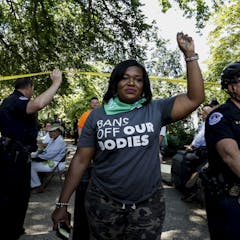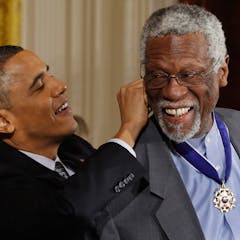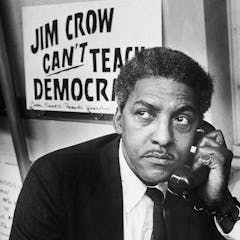
Articles on Black History Month
Displaying 1 - 20 of 89 articles

Historians are working to shine a light on Alice Ball’s legacy and contributions to an early treatment of a dangerous and stigmatizing disease.

The Black Londoners Project approaches Black history geographically by supplementing narratives of 16 Black individuals with archival evidence about their lives.

While “Black Canada” is a useful blanket term and important organizing identity, a closer look reveals a detailed tapestry of communities that also deserves visibility.

Black travelers want the tourism industry to recognize their full identity. That will require more than procedural checkboxes and targeted advertising.

Black activists have long used maps to help illustrate their communities’ history and to document historical injustices.

The portraits hold up a mirror to a society that has underappreciated the Windrush generation for far too long.

While it’s widely believed that Howard University came to be known as “The Mecca” in the 1960s, new evidence shows the nickname is more than half a century older than that.

In the US, white men have long had the power to make decisions about women’s reproductive health care. Those decisions have often been especially harmful to Black women.

The lack of visibility by Black researchers and physicians in scientific literature perpetuates systemic racism in medicine.

Kittrell’s legacy shows that home economics was always about more than cooking and sewing. It’s also a reminder that issues that affect families are simultaneously local and global.

As the 20th century’s preeminent scholar-activist on race, W.E.B. Du Bois would not be surprised by modern-day attempts at whitewashing American history. He saw them in 1930s and 1940s.

Millions of enslaved Africans were forcefully converted to the Christian faith. The Black church came about when African Americans began to establish their own congregations.

A college readiness scholar says the new Advanced Placement course in African American Studies has been weakened by political pressure from the right.

The episodes on this playlist span the start of the pandemic with its worldwide demonstrations against anti-Black racism, to the most recent violence this winter.

America’s complicated history with race can be told through the lives and times of Black Americans, a view that some GOP-controlled state legislatures want to restrict, if not outright ban.

Bayard Rustin led a long and complicated life dedicated to the fight for equal rights. Targeted by the FBI, Rustin became a close adviser to Martin Luther King Jr.

Instead of using the secret routes along the Underground Railroad to find freedom in the North, thousands of enslaved Black people fled to free Black communities in Southern slaveholding states.

A collaborative curatorial project is cherishing every little relational trace of Black lives found in archives in a city long defined by histories of Canadian whiteness.

Ensuring that every Black youth sees Back teachers at school is one critical piece of addressing systemic racism in schools.

Black writers like Charles Chesnutt had to contend with a dilemma writers today know all too well: give the audience and editors what they want, or wallow in obscurity.
